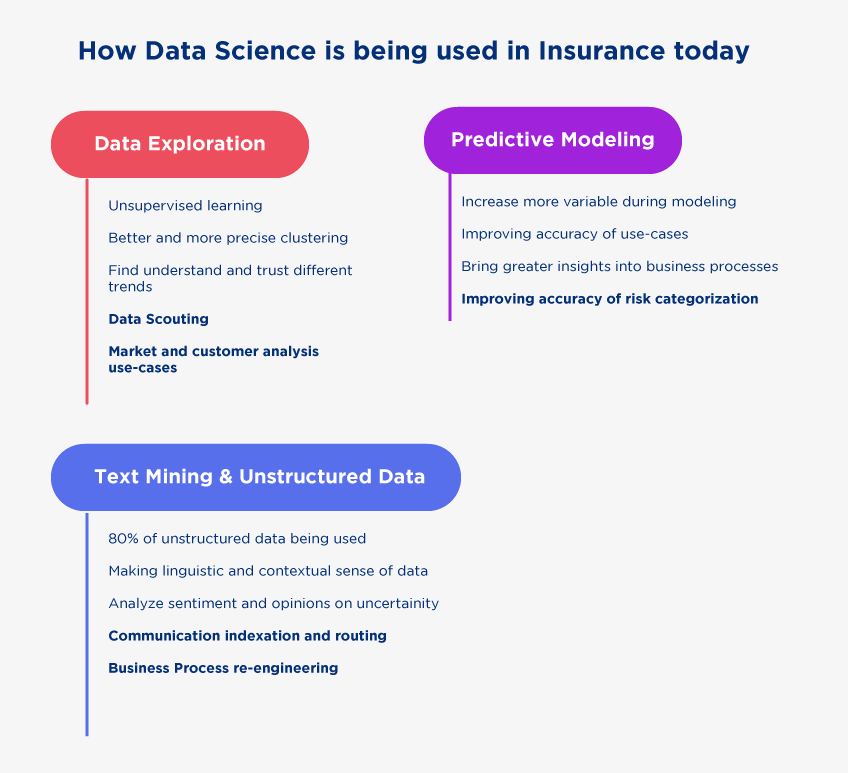Style Sampler
Layout Style
Search News Posts
Genel Sorular 850-244-11-22
•
Destek 850-244-11-22
Otomasyon Çözümlerİ
Living in a time of technological advancement, nearly every business is eager to use advanced machine learning and data science in the insurance domain to maintain a reputation and drive wisely with the adoption and execution of algorithmic applications in nearly every field, including healthcare, customer service, and insurance.
Businesses in the insurance sector encounter a variety of difficulties. It's an incredibly competitive market, especially now that consumers can compare businesses online with ease. Regrettably, it has endured years of underinvestment in emerging technology. The above-mentioned use cases will serve as a foundation for new applications that insurance companies will develop as they understand the advantages of machine learning and data science in the insurance industry and how they can improve customer service.
The unpleasant insurance experience for clients might be replaced with something quick, convenient, and more reasonably priced with data science. Consumers will eventually experience more customizable insurance since insurance companies can better grasp what their consumers desire and require with data science in health insurance and machine learning technology..
Additionally, data science will make it simpler for clients to communicate with insurance providers, increasing the likelihood that they will make a purchase. All the above ways are discussed to show how data science is used in the insurance industry.

The availability of data is among the most frequent problems that businesses have with machine learning. For businesses to use machine learning, raw data must be accessible. Large amounts of data are required to develop machine learning algorithms. A few hundred bits of data are insufficient to train systems properly and use machine learning.
Data collection is not the only issue, though. Additionally, you must model and refine the data to conform to the chosen algorithms. One of the problems with machine learning that is regularly encountered is data security. Security is a crucial issue that must be addressed when a corporation has retrieved data. To use machine learning accurately and effectively, it is crucial to distinguish between sensitive and non-sensitive data. Companies must store sensitive data by encrypting and putting it on other servers or in a location with complete security. Reliable team members can be given access to less sensitive information.
A customer-centric strategy is being adopted by the insurance business. Businesses want to make items that are priced fairly and adapt to different customer needs. They aim to do away with the traditional, strict pricing structure that relies on billing a consumer after asking them a few questions and blatantly figuring out their risk profile. Due to a lack of knowledge and data, applying machine learning is difficult when underwriting policies using a customer-centric approach.
Due to increased connection and distant accessibility, data security and reliability are major problems. There is great concern about harmful parties gaining access to private information. But for newcomers, investing in and maintaining expensive security software might not be possible.